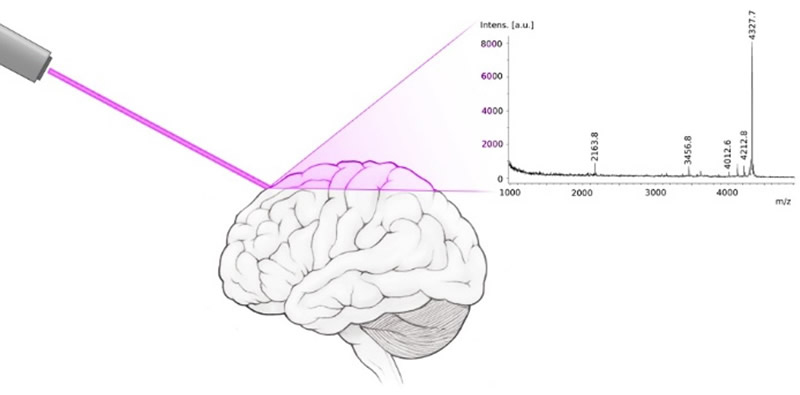Senile Plaques in Alzheimer's Disease (AD) Brains
Alzheimer's disease (AD) is one of the most researched diseases in the world; however, so much is still unknown about the mechanisms of its onset and progression. Our research focuses on the use of mass spectrometry, a powerful analytical technique, to develop a clearer picture of the mechanisms at work in the development of senile plaques in AD brains. Senile plaques are thought to be primarily made up of amyloid-beta peptides but our methods have confirmed that the plaques are actually much more complex than previously believed. With the application of imaging mass spectrometry, which combines the mass analysis of mass spectrometry and the visual of classic microscopy, we can begin to understand, at the molecular level, the underlying players in AD etiology and how the disease-state brain really differs from a normal brain.


